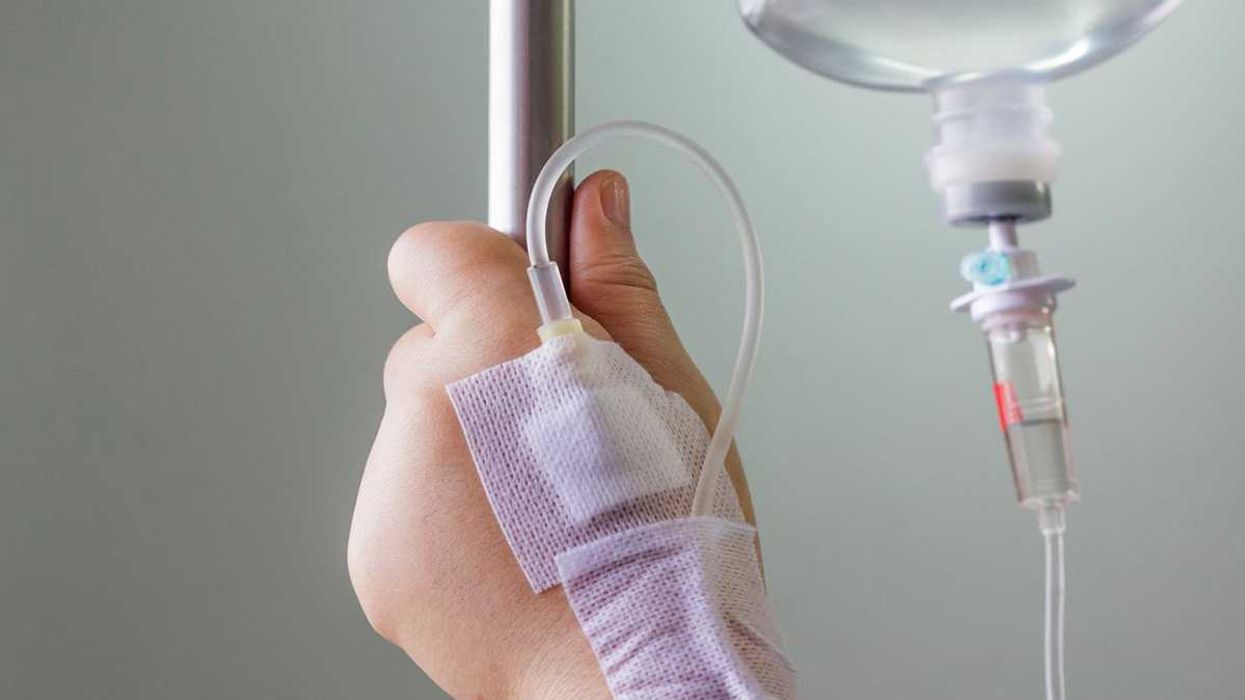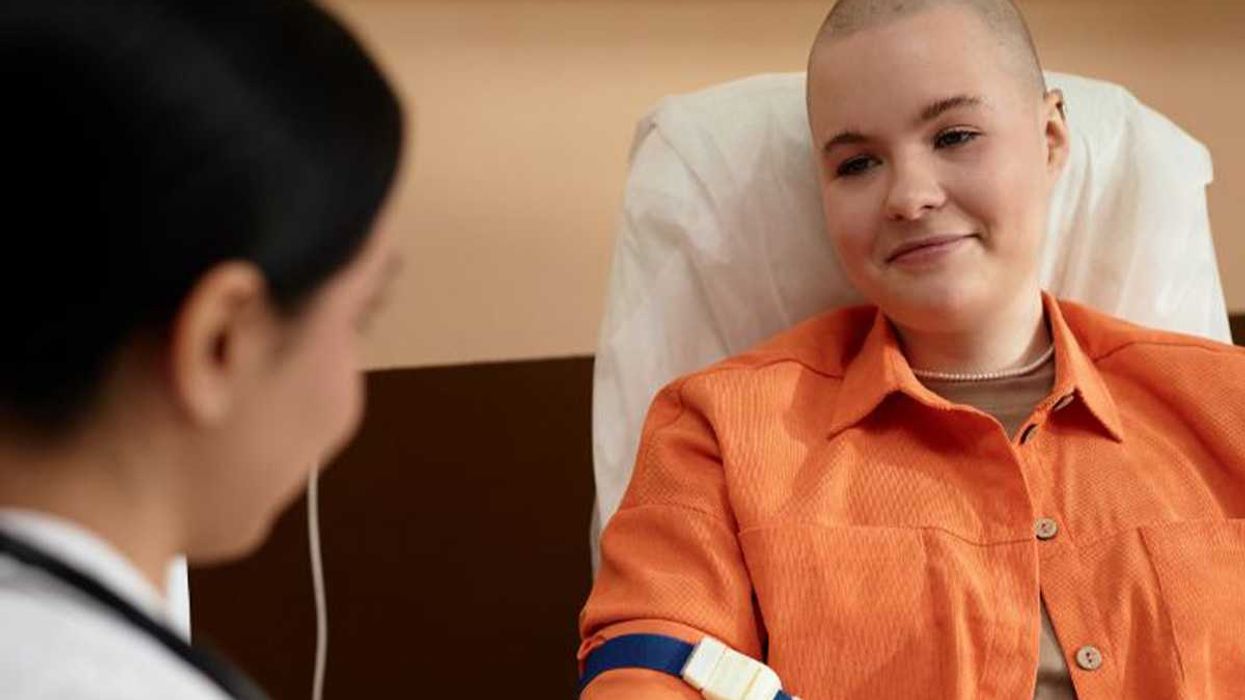Breakthrough chemotherapy treatment eliminates side effects and is 20,000 times stronger
"Scientists say it could revolutionize cancer treatments."
Elderly couple warmly connecting during chemotherapy.
Most of us have been touched by the challenges of a friend or loved one facing cancer. It's a terrifying scenario where, often, outcomes can feel disheartening. However, the integration of Artificial Intelligence (AI) and blossoming research continues to pave the way toward hopeful and exciting innovations.
A recent study conducted at Northwestern University involved re-engineering a weak, poorly dissolving chemotherapy drug into a targeted, cancer-fighting agent. It effectively works 20,000 times stronger while sparing healthy tissues. New nanomedicines are revolutionizing treatment with promising restructuring of therapies that vastly improve how they interact with the human body.

Northwestern scientists usher in a new era of precision nanomedicine for cancer treatment
A 2025 study in Science Daily redesigned the molecular structure of a widely used chemotherapy drug, making it less toxic to the body and vastly more potent. Compared to the standard chemotherapy treatment, it was 20,000 times more effective without the side effects. Researchers believe the promise of restructural nanomedicine could improve cancer therapies, infections, neurodegenerative disorders, and autoimmune diseases.
Leading the research, Chad A. Mirkin, the George B. Rathmann Professor of Chemistry, Chemical and Biological Engineering, Biomedical Engineering, Materials Science and Engineering, and Medicine at Northwestern, said, "If this translates to human patients, it's a really exciting advance. It would mean more effective chemotherapy, better response rates, and fewer side effects. That's always the goal with any sort of cancer treatment."
One of the main issues in using chemo treatments can be the inability of the drug to dissolve properly. The body can't effectively absorb it. Drugs can clump together and remain solid, resulting in less than 1% dissolving into biological fluids. Thus, most drugs never actually reach their intended targets.

With precision targeting, these nanomedicines result in minimal harm to patients
Leukemia cells in the blood and spleen were tested on mice. The chemotherapy payload is released directly into the cancer cell, eliminating targeted cells while the remaining healthy tissues stay unharmed. Talking about traditional chemotherapeutics destroying everything they come into contact with, Mirkin stated, "Our structural nanomedicine preferentially seeks out the myeloid cells. Instead of overwhelming the whole body with chemotherapy, it delivers a higher, more focused dose exactly where it's needed."

Nanoparticles and smart delivery are revolutionizing treatments from discovery to dosage to management
Advancements through AI have been reducing the collateral damage to normal cells. A 2024 study in MDPI found that using AI helped predict when chemotherapy patients might start feeling worse. Doctors looking at patient symptoms with AI backing had a better understanding of who might need extra care, thus catching problems earlier, reducing pain and side effects, and helping the patients get the best care possible. A 2024 paper published by the Royal Society of Chemistry found that the physical and biological delivery of chemo is vastly improving. With better targeting, improved tumor microenvironment exploitation, and reduced toxicity, nanoparticle cancer therapies are more effective.
Much of the advancement of treatment revolves around the innovation of existing medicines rather than creating wholly new chemotherapy drugs. A 2024 study in the National Library of Medicine approached the topic of gastric cancer, finding optimization was possible through targeted immunotherapy while refining the timing and regimens of the treatment. In its conclusions, the study stated, "Looking ahead, integration of molecular biomarkers, multidisciplinary care, and international collaboration will be key to refining treatment strategies and achieving personalized, evidence‐based care in gastric cancer."
A 2025 article on reinventing chemotherapy published by Oxford Academic focused on the rapidly changing interest of the medical field in targeted therapy and immunotherapy. These new drugs are specifically engineered to attack the exact proteins or genes that drive cancer growth. It is believed these new systems will become the first-line treatment and replace much of the traditional chemotherapy practices.
Cancer treatments are becoming increasingly integrated with multimodal therapies, including immunotherapy, targeted therapy, surgery, and radiation. Unfortunately, many of the breakthroughs have yet to be implemented on a large scale. Studies like the one conducted at Northwestern University could lead to patients facing less pain, fewer side effects, and better outcomes.
Watch this fascinating video released by Northwestern University showing the chemotherapeutics release directly into the leukemia cells here:
- YouTube www.youtube.com

